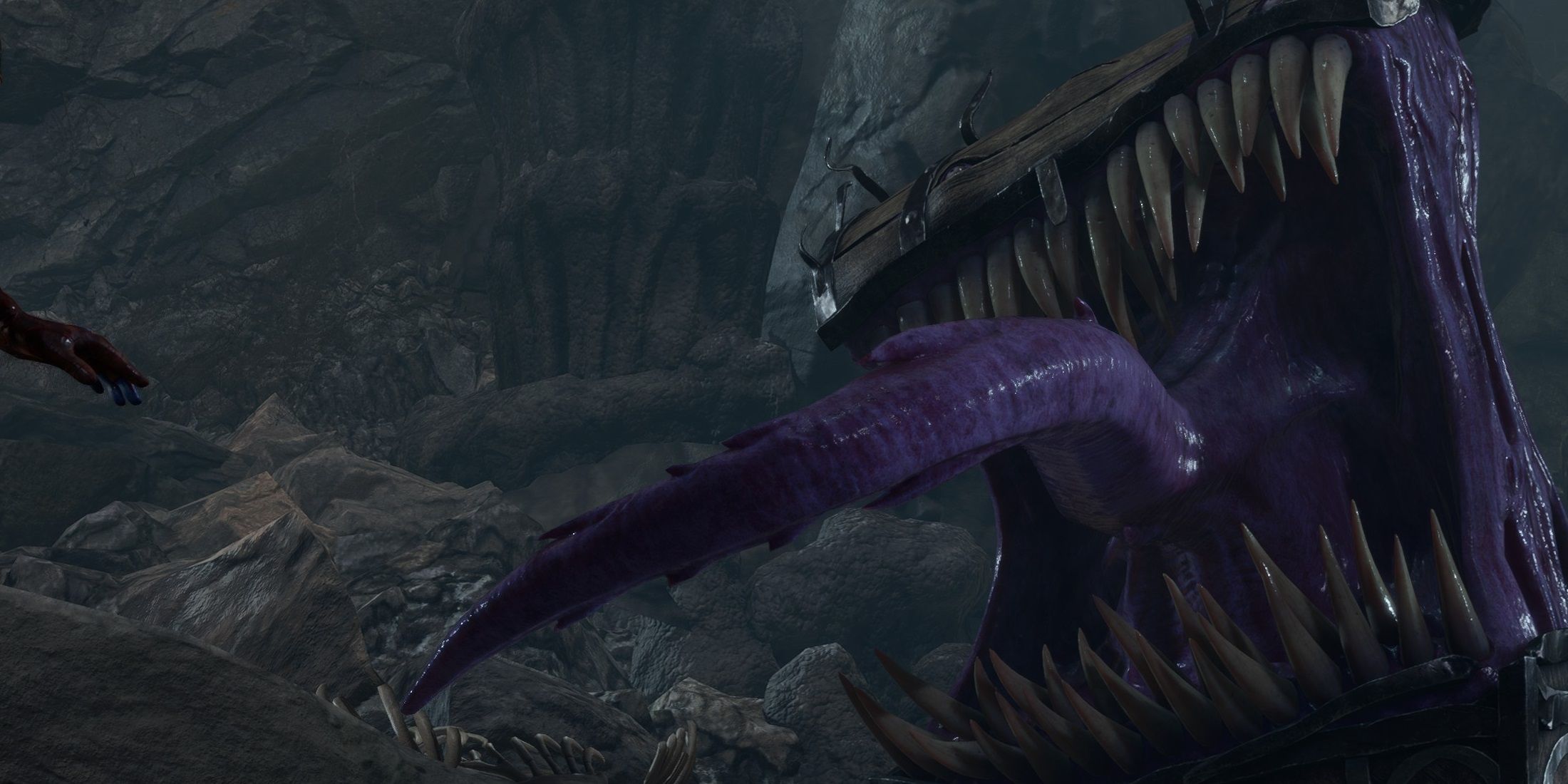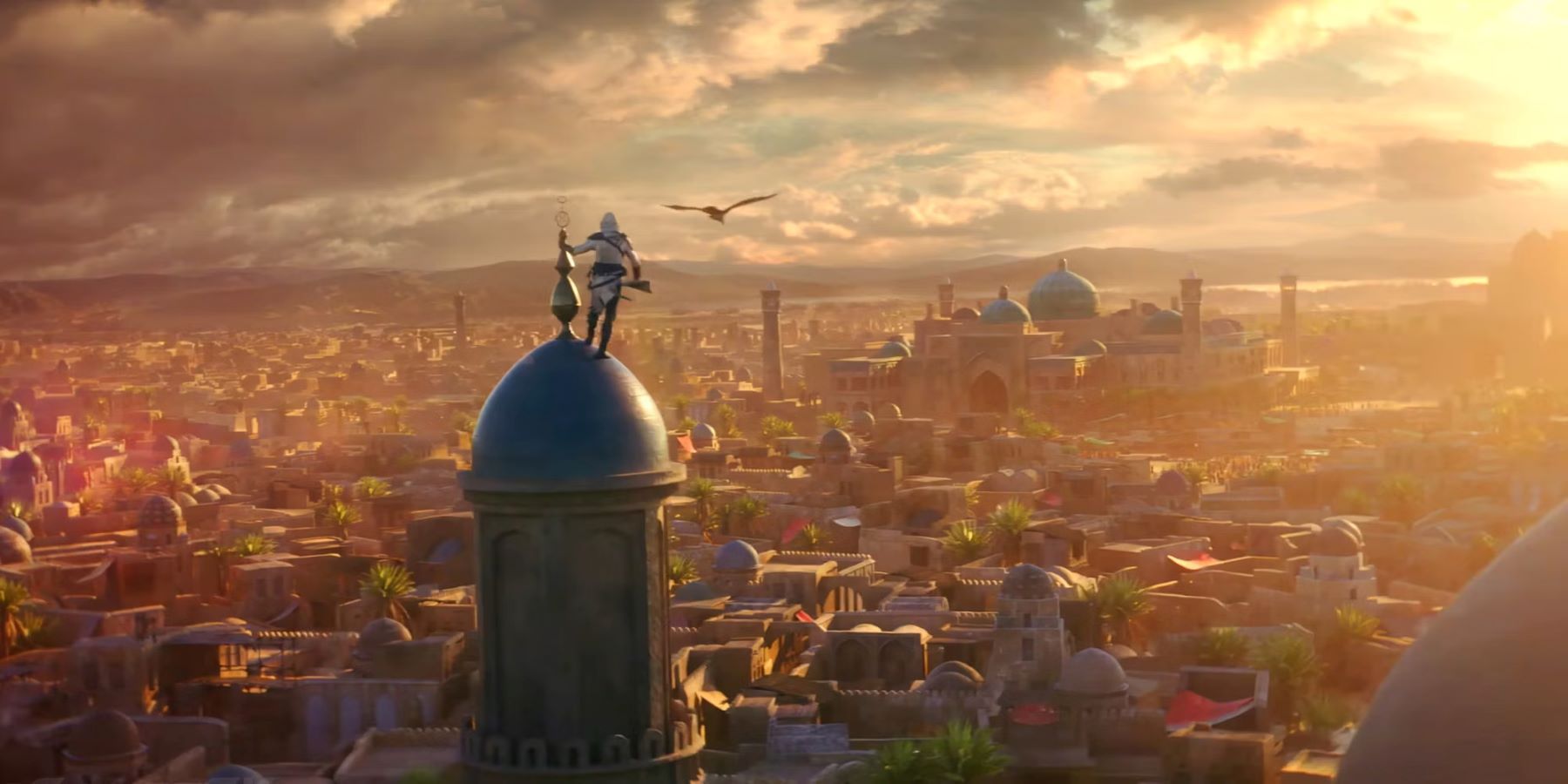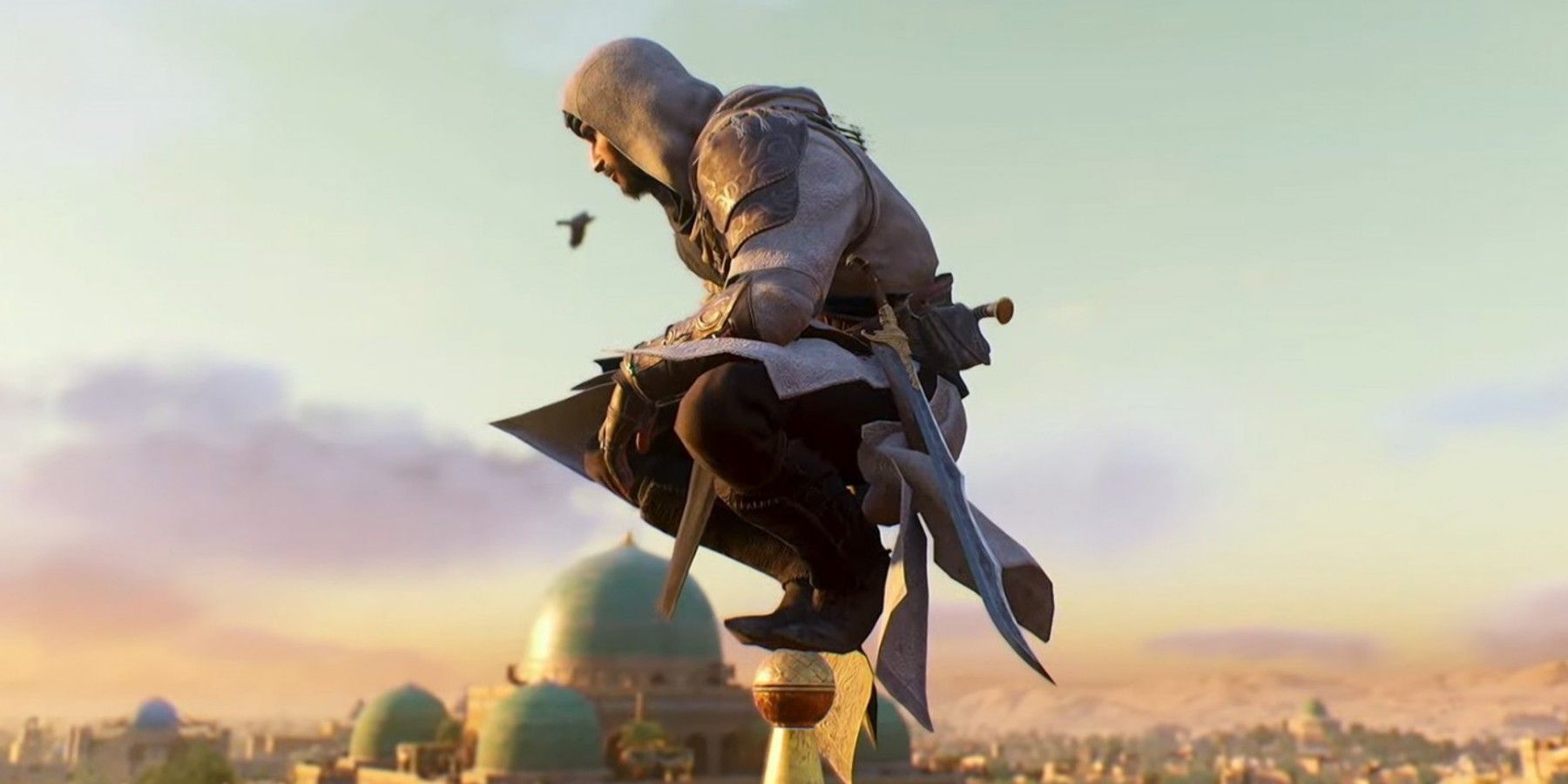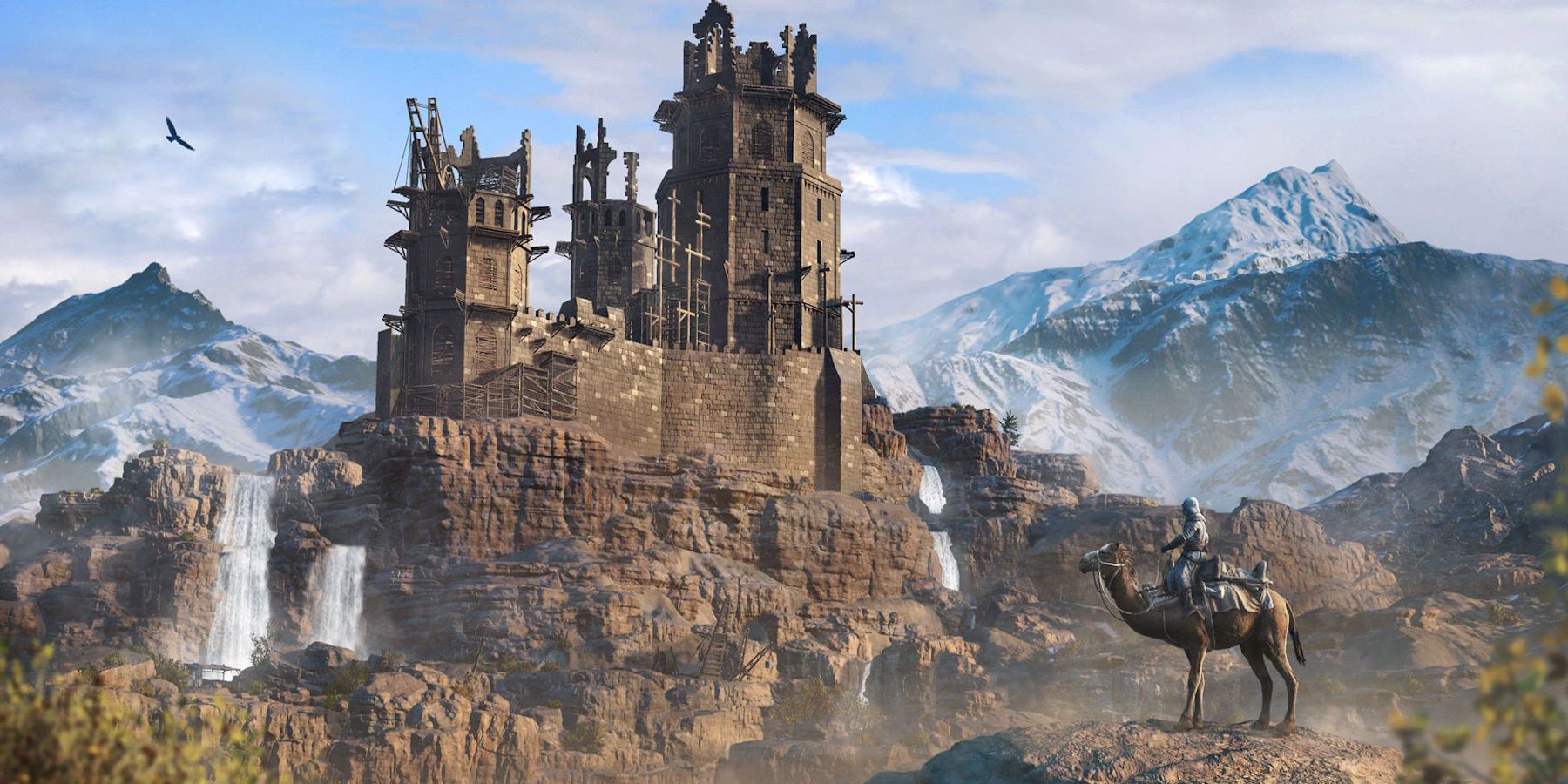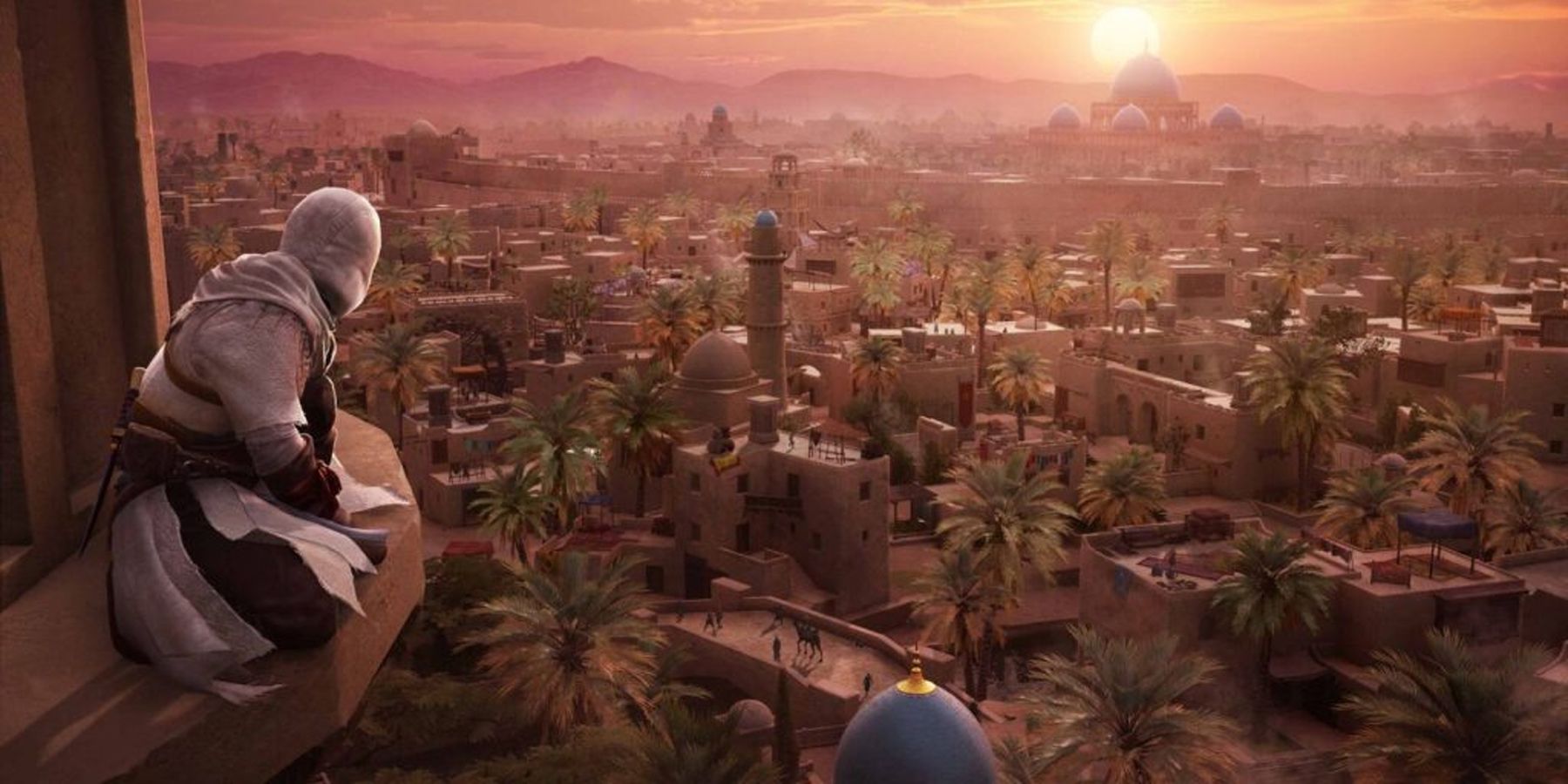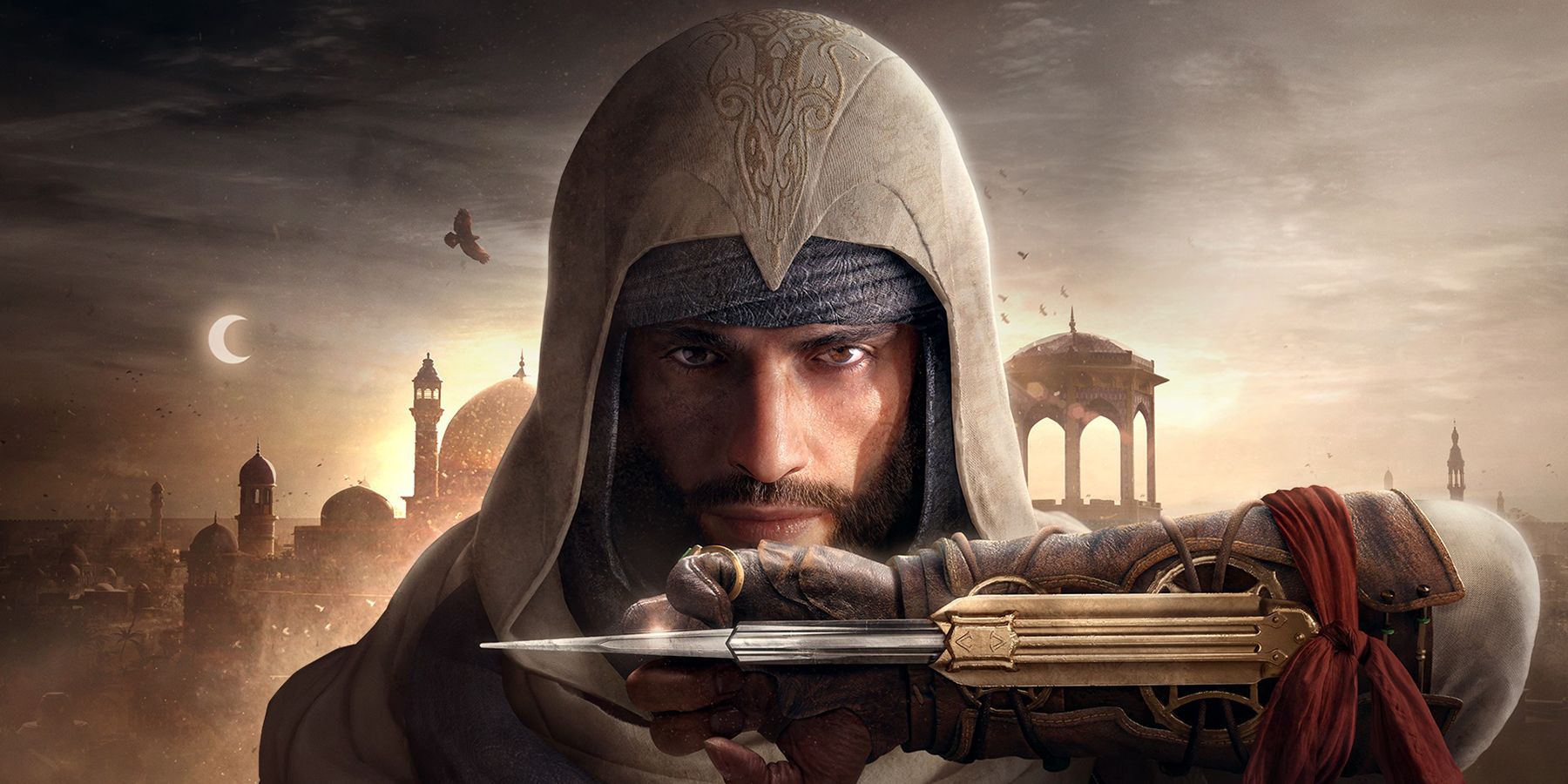Highlights
- Assassin's Creed Mirage meticulously crafts the world of Baghdad, ensuring authenticity by representing multiple backgrounds and languages.
- Liberties were taken with the depiction of Baghdad, such as moving mountains and rivers for gameplay and adding colors to domes for visual cues.
- The process of designing the House of Wisdom involved combining various descriptions of buildings and courtyards from historical texts and other places of wisdom in the region.
Assassin's Creed Mirage has finally taken its leap of faith into the world, finding its way into the hands of fans of the classic era, newcomers to the franchise, those interested in its setting, and more. Creating Assassin's Creed Mirage was a labor of love for Ubisoft Bordeaux and its supporting studios, as the world of Baghdad was meticulously crafted. That craft required hours upon hours of research into the history.
Game ZXC recently spoke with Ubisoft historian Raphael Weyland about Assassin's Creed Mirage, discussing things such as key elements of Baghdad, liberties that had to be taken and why, and much, much more. The following interview has been edited for clarity and brevity.

Assassin's Creed Mirage Historian Reveals Funny Detail About Soap
Assassin's Creed Mirage is filled with historical elements, but one small, funny detail about soap may just about take the cake.
Q: I know it may be hard to narrow it down to one, but is there any one big thing you wanted to make sure was absolutely right in the game, from an authenticity or historical accuracy standpoint?
Weyland: Yes, I really, really wanted to make sure that the city felt like it was inhabited by multiple people, people from multiple backgrounds. It was not only people speaking Arabic and only Muslim people, but there were also people speaking Persian, Chinese, Hebrew, and some Greek. This, for me, was absolutely essential because it is a really important aspect of the city. It is what made it essential at the time, and we managed to do it. It took time. It meant recording multiple people in multiple languages and making sure all of it was accurate. We managed to do it, so I'm really proud of that.
Q: For sure. When I first heard "malakas," I lost it. On the other end of the spectrum, I was curious if there's anything you know of that was cut for accuracy?
Weyland: Actually, I cannot think of something that was cut, but there were things that were added. One of the things we added, for instance, is the fact that there are women who are not veiled in the game. At the time, there were people wearing the veil or not wearing it from different religions. This is something we put in because it existed at the time. But I cannot think of something that we cut because it made no sense, it was a false representation, or it was a false impression that the devs might have had about the city that we had to change.
Q: Could you talk about some of the liberties taken with the depiction of Baghdad as a whole?
Weyland: Yeah, I can give you three quick examples. The first one is that when you're in the city on the walls, you can see mountains in the background. There are no mountains close to Baghdad. They are like 300 kilometers away, so you cannot really see them. But we decided to bring them closer, we literally moved mountains. Because in the game, there is a part where you're an apprentice in the mountains, in Alamut, and then you come back to Baghdad. We wanted to give you a visual feeling of how you've moved from there to here, so we put the mountains closer.
We also moved the rivers. They are not that close to each other. We moved them simply because it would cut down the map size, and it would be easier than putting some artificial thing that would simply block you. The river is a nice way to simply enclose the map.
Another thing that we did...I gave the example of making the walls bigger than they should be because we wanted them to be an ever-threatening presence. But for some of the domes, we gave them colors that they did not have because we wanted the players to understand where they are in the city by looking at them. It communicates if you have green minarets or blue minarets, something like that, then you must be in that neighborhood. But actually, it wasn't like that. People did not do stuff like, 'Okay, in this neighborhood, we only do this color.'
This is one of the things that we do so that it helps gameplay, but it was not actually like that.
Q: You've mentioned how you'd get odd questions as a Ubisoft historian, such as how they sweep in front of their house and interesting things like that, things students would never ask if you were teaching or something. My question would be if there were any questions that you were asked throughout development that had you super excited, burning the midnight oil to find the answer to, so to speak?
Weyland: Yes, there were multiple questions I had no idea what the answer was before I started researching. I would say pretty much every morning was like that because there was so much to learn.
There is one thing in particular that stands out. One of the things that we do is that we try to help them write flavor lines. Flavor lines are not essential to the story or anything like that. They're things that you would hear in the street and would make you feel that this is real, that it is lived in. There are people who exist beside you, they don't have anything to do with you, but they are real.
And so they asked me, 'Hey, we have a soap market, would you have anything related to soap?' I had nothing.
But I found an anecdote that soap merchants made their soap into bars that look a bit like cakes. They would sometimes tell travelers and foreigners, 'Hey, this is a cake.' It actually went so far that people also took up on that and started to make cakes that looked like a soap bar. Imagine you've just started trying to wash yourself, but it's actually a cake. You'll find a line related to that in the game, but this is just like a morning in my life, reading through texts and finding that.
Q: Could you talk about the process of designing the House of Wisdom as it exists in the game?
Weyland: So this building is nothing that actually exists. It is a mix of different buildings, libraries, and places of knowledge that we put together, imagining what it could have been. We'd go from the description from the texts that say, 'Okay, so this is what it was.' But it doesn't describe how it looked. Or, 'There is a big courtyard.'
Okay. Well, put in the big courtyard, but what do we put around it? Are there buildings? Are there rooms? Are there multiple floors? Where is the courtyard, and is there only one?
We had to look at other universities or libraries of the time, sometimes a bit later, too. We looked in Cairo, for instance, in Egypt or in Iran, so in more or less the same region in the Middle East. And more or less in the same 100 years, we went through what we could, and we've put it together to make this building. But it is not one single building that existed anywhere. It is a mix of multiple buildings that had the same objective of being places of wisdom, let's say.
Q: I know it's probably super hard to quantify, but how much of your time do you think was spent solely on research for the game?
Weyland: A good, good part of the time. There's also writing and presenting involved, but I mean, I worked on researching myself for a year, and they already had research before I came into the project. There are other people that were involved, other external historians that were involved too, and they also devoted weeks or months or whatever. So in the end, it amounts to, I don't know, one person working maybe two years or something like that. But even that, there is a saying in history that we are all dwarfs sitting on the shoulders of giants. It is a way to recognize that what we are actually depends on the people who came before us.
When I open a book and there is information about soap or whatever, someone spent I don't know how many years to get to know this information that I read in one minute. So I am on the shoulder of this giant that has helped me. So yeah, it's one year of one person, but it's actually hundreds of years of humanity trying to put together information that we try to put into the game. But yeah, if you want to have a number of hours, I don't know how many hours I work in a year. But I would say that. That's a lot, let's say a lot.
I know some people just hate research, but it also just sounds like a lot of fun. I mean, I know it's work, but...
Weyland: I enjoy it. It is true that sometimes when it's sunny outside and everything is good, and I'm in there looking at text and not finding what I want, it can get frustrating. But at the same time, when you're doing history, it's as if you were living 1000 lives. Because I am exploring the life of this person. How did they make the canals? Or exploring this artist or this singer or whoever. So there is always something interesting, no matter how sunny the day is outside. I always had fun doing the job. And when I find the answer I want, it's even better.
Q: In the Assassin's Creed fandom, there are people who prefer and love the historical aspects of the franchise more than anything else. With Mirage's launch, what would you say to those who have always loved the way this franchise has depicted history?
Weyland: I understand them a lot too because, growing up, I was one of these people who was drawn to Assassin's Creed because it was like jumping into history and playing with history. I tend to play historical games in general, but this is a way to play with history completely different than Total War or something like that where you're a general and you're looking at it from up top.
No here, you're in the streets, and people are right beside you talking the right languages and all of that. This is living history, kind of a fantasy. So yeah, I am one of those people. I would tell them I'm happy to join them.
[END]
Assassin's Creed Mirage is available now for PC, PS4, PS5, Xbox One, and Xbox Series X/S.

